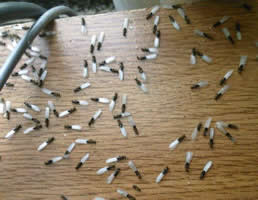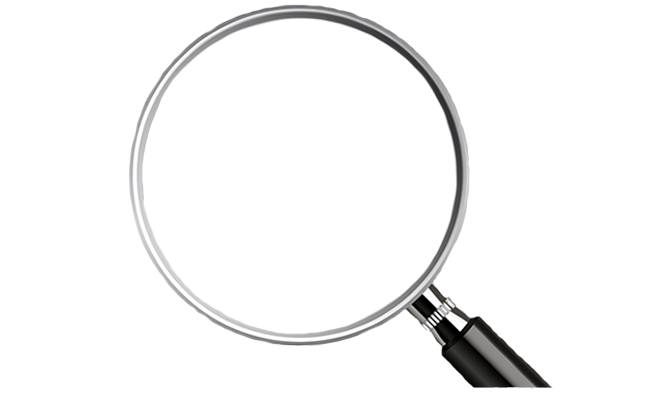Termite Swarm Season CT … What do they look like?
 Termite swarming in CT takes place on warm, sunny days usually in the Spring. The swarm is made up of reproductive termites. Future king and queen termites rush out of the ground and pair up. These reproductives, have two pairs of wings that are about twice as long as their bodies. The four wings are all the same size, and fall off soon after emergence. The presence of wings in a basement or other area of your CT home is an indication of termite activity.
Termite swarming in CT takes place on warm, sunny days usually in the Spring. The swarm is made up of reproductive termites. Future king and queen termites rush out of the ground and pair up. These reproductives, have two pairs of wings that are about twice as long as their bodies. The four wings are all the same size, and fall off soon after emergence. The presence of wings in a basement or other area of your CT home is an indication of termite activity.
Termite colonies form when the king and queen, mate and find a suitable location to start a family. Swarming within a structure will not lead to colony formation in most instances. Termite colonies develop slowly and may not survive the first few years if conditions are unfavorable.
It takes between 3 and 5 years for a termite colony to reach reproductive maturity and produce it’s first swarm. Under the right conditions the number of termites in the swarm will increase annually. Successive swarming will leave thousands of wings laying about you CT home if not cleaned up. Relatively few termites will survive the swarm, an few of those that mate will go on to form viable colonies. Once established, a colony may persist for more than 20 years.
Termites in CT live in the soil, and create a nest made of soil, saliva, and fecal material. Mud tunnels are built to move through the soil and into food sources. When swarming occurs in CT, the swarming termites gather at the exit point, where workers build an opening in the mud. This may form a swarm castle, and may look like a little tube jutting up from a crack in the foundation, floor, or wall. Swarm castles may also resemble a pile of loose soil, suddenly appearing behind the furnace.
The entire CT termite colony is a controlled environment with just the right living conditions. Moisture is a constant need, as well as the never ending search for cellulose containing food sources. This search for food may lead termites to wooden structural members. Feeding is accelerated by available moisture and proximity to the soil.
As the colony grows it’s demand for food also increases. Over time damage can accumulate and be a major concern for the homeowner. Termite damage is not only costly to repair, but may also lead to unwanted negotiations at the time of sale or re-financing. Home and Pest inspections often uncover termite damage and activity that was unknown to the homeowner.
Call us today 888-558-1574.


